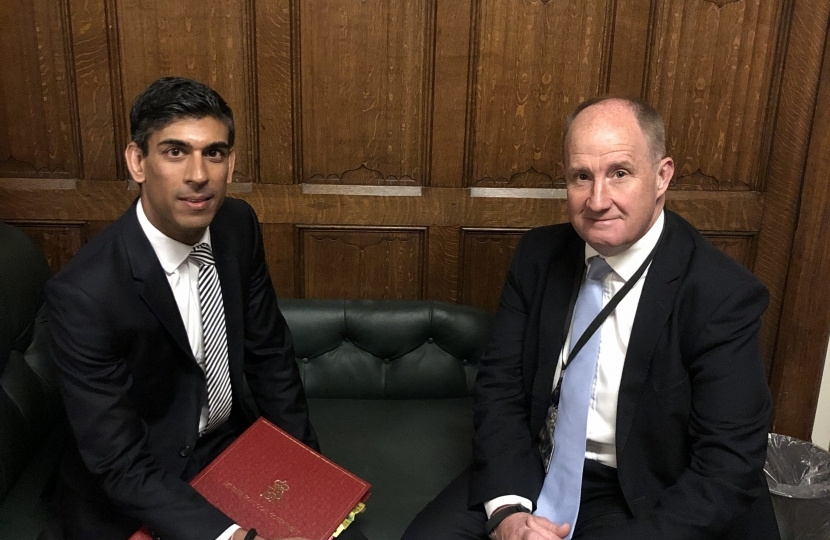
Businesses across Thirsk and Malton were able to access business rates relief. In total 1,155 businesses in the constituency were able to get £13.8 million of relief. Furthermore 3,707 grants of over £41.7 million were given to businesses throughout the area were able to access support needed in order to keep their businesses afloat throughout the pandemic. In addition, through the various loans offered by the Chancellor nearly £75 million in business support loans have been given out to 1,961 businesses in the constituency.
14,100 in Thirsk and Malton accessed the Job Retention scheme throughout the pandemic, enabling as many people as possible to keep their jobs. Throughout the period of furlough, the government paid 80% of the salaries of employees in businesses who were disrupted by coronavirus. In addition, the government has helped to help support people going through Universal Credit with an extra £9billion being put into the welfare system.
Since March, 3,500 self-employed people in Thirsk and Malton have accessed more than £9million worth of Government grants through the Self-Employment Income Support Scheme. This means that the government has able to provide support for self-employed people throughout the crisis and give them similar support to people who were furloughed. Nationwide the government has provided £13.4 billion of overall support to help people retain their income during the pandemic.
Local authorities across North Yorkshire have received a total of £4.5 million across the constituency. Hambleton was allocated £1.3 million, Ryedale £840,000 and Scarborough, which covers Filey, were given £2.4 million since March. North Yorkshire County Council was allocated £50m.
People across North Yorkshire took advantage of the Eat Out to Help Out scheme in August designed to support the hospitality industry which had to close in March. 196 businesses throughout Thirsk and Malton accessed the scheme with constituents claiming for 186,000 meals. On average £5.96 of every meal which was part of the scheme was discounted, well above the national average. In addition, the added flexibility for businesses through the Time to Pay scheme has meant that 496,000 VAT payments nationwide have been deferred up to a value of £27.5 billion.
The Job Support Scheme (JSS) and the changes made to it which will support businesses and employees facing lower demand over the winter months. The JSS will now see employers contributing 5 per cent to an employee’s unworked hours and the minimum hours employees need to work to be eligible have also been reduced from 33 per cent to 20 per cent. This will ensure that employees on the scheme will receive at least 73 per cent of their wages and is initially available to employers for six months from 1 November 2020, and will be reviewed in January.
Furthermore, for the self-employed the Government is increasing the value of the SEISS from 20% to 40% of three month earnings, for November to January. This will mean the maximum available grant will increase from £1,875 to £3,750. And there will also be a further grant payment, covering February to April, as well. This reflects the increase in government contribution to the wages of those who are employed on the JSS, and ensures parity for those who are in self-employment.
Unprecedented support is also going to people buying houses during the pandemic. Although sales slowed during the pandemic, they are now increasing again thanks in part to the announcement made by the Chancellor in July that people buying houses for under £500,000 will not have to pay stamp duty on their houses until the end of March 2021. This will ensure medium-term confidence in the property market and help to protect jobs in the industry.

